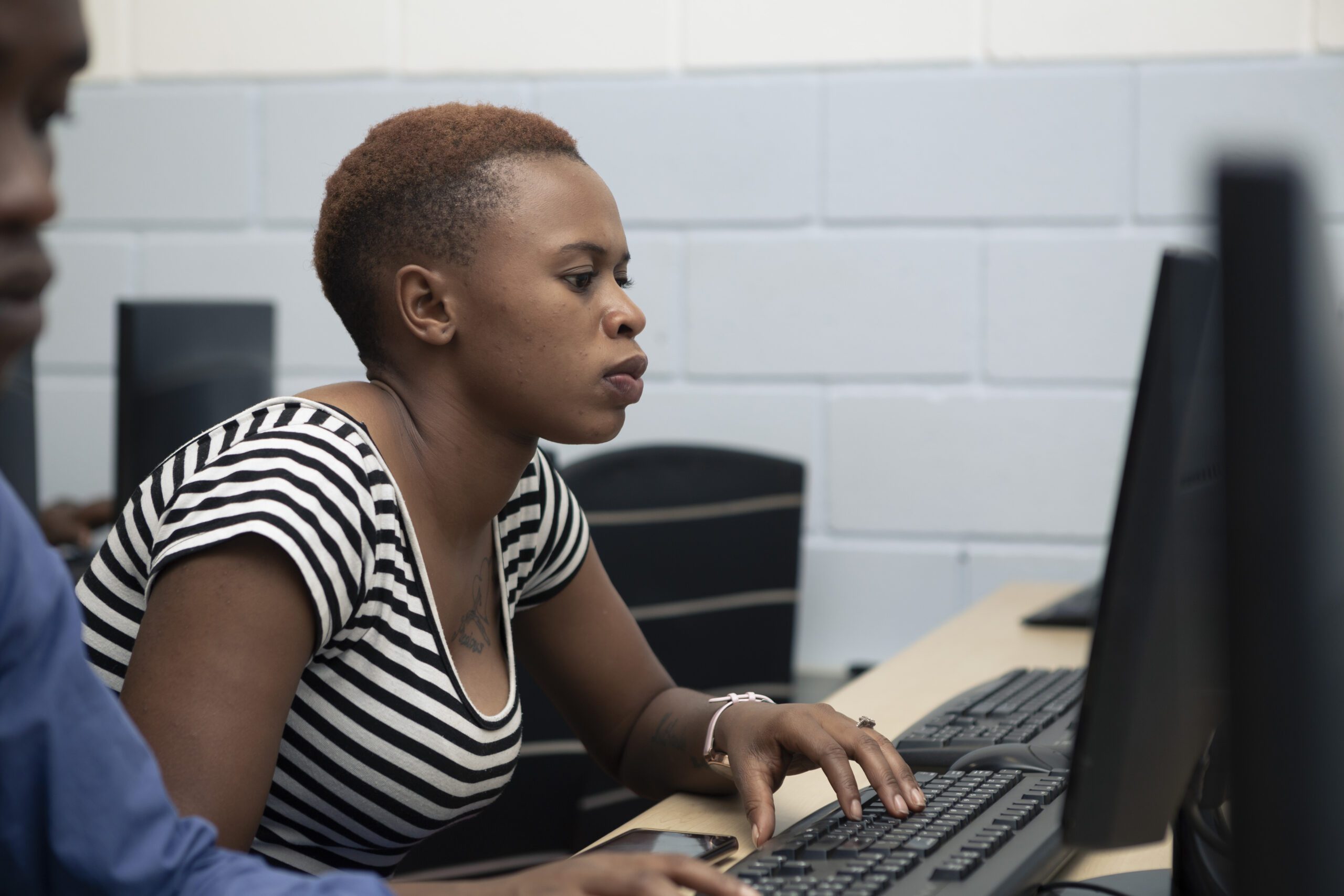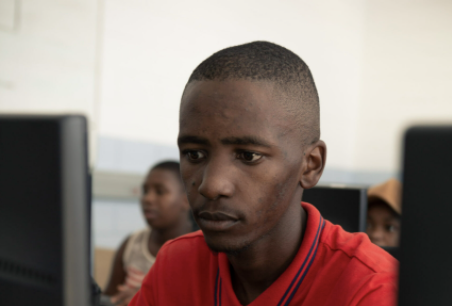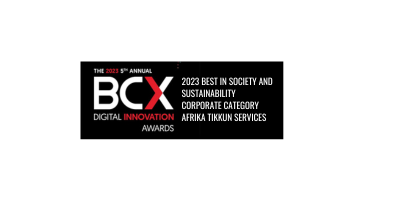Zensar provides Afrika Tikkun with digital Infrastructure for our times
The queue to the computer lab at Afrika Tikkun’s Phuthaditjhaba Centre has recently shortened. Young people like Pontsho (26) and Nomalisa (23), participants in the organisation’s Career Development and Placement Programme, no longer squabble over internet time. This means easier access to computers for their online learning programmes. For younger learners at the centre which based in Alexandra, homework gets completed in record time and educational tools and games get optimum use.
Thanks to the partnership between Afrika Tikkun and Zensar, and the latter’s generous donation of eight new laptops, the centre’s computer lab has now increased its seating capacity from 20 to 24.
Partnerships such as the one with Zensar, allow Afrika Tikkun to increase its reach and improve the quality of service afforded to learners. “The upgrading of the computer centre helps us increase our intake of young people and uptake of skills development services provided through the centre,” says Patricia Moloi, General Manager at Phuthaditjhaba Centre. “This is much needed at this time, particularly as COVID-19 accelerated the need for digital transformation of our programmes, facilities and operations.”




Even prior to the onset of the pandemic, before access to digital tools became key ingredients for organisational pivots and financial sustainability, South Africa had been readying itself for a digital revolution. In 2018, Stats SA’s General Household Survey found that only 10% of the population has access to internet at home. A similar portion have access through internet cafes or educational facilities such as Afrika Tikkun. South Africa’s National Development Plan aims to ensure that, by 2030, public schools are well-equipped with libraries, laboratories, computer and media centres to ensure that learners have access to relevant learning resources. With so many schools still under-resourced, particularly those in the communities where Afrika Tikkun works, community centres like Phuthaditjhaba become literal beacons of hope.
The improvement to Puthaditjhaba Centre represents a wider strategy throughout Afrika Tikkun to respond to the need for agility during COVID-19. The abrupt move from the classroom to remote learning during the hard COVID-19 lockdown interrupted learning for children in lower-incomes areas as their families lacked the financial means to afford computers and internet access. It became critical to digitize Afrika Tikkun programmes to ensure continued learning, as well as upgrade its internal processes to enhance the sharing and flow of information. “It became necessary to adopt new ways of working, to innovate around the current programmes and to re-strategize over changing community needs,” says Onyi Nwaneri, CEO of Afrika Tikkun Services, the training and placement arm of Afrika Tikkun. “In addition to our assurance to provide food and essential goods, the concomitant need for continued learning has remained a key priority across Afrika Tikkun operations throughout this time.”
The potential of digital appears unending as the combination of computers, the internet, and mobile devices can transform the experience of learning and work and empower young people to explore new. However, we must ensure that those from under-resourced communities are not left behind. Individually and collectively, Afrika Tikkun and Zensar are committed to this vision. “We see Zensar’s donation as a beginning, a great step in ensuring that we have infrastructure that speak to the times,” says Nwaneri. “The essence of our programmes has and will remain the holistic development of youth and their families to ensure our young people become economically active. In this way, they contribute effectively to family and society in the future.”



